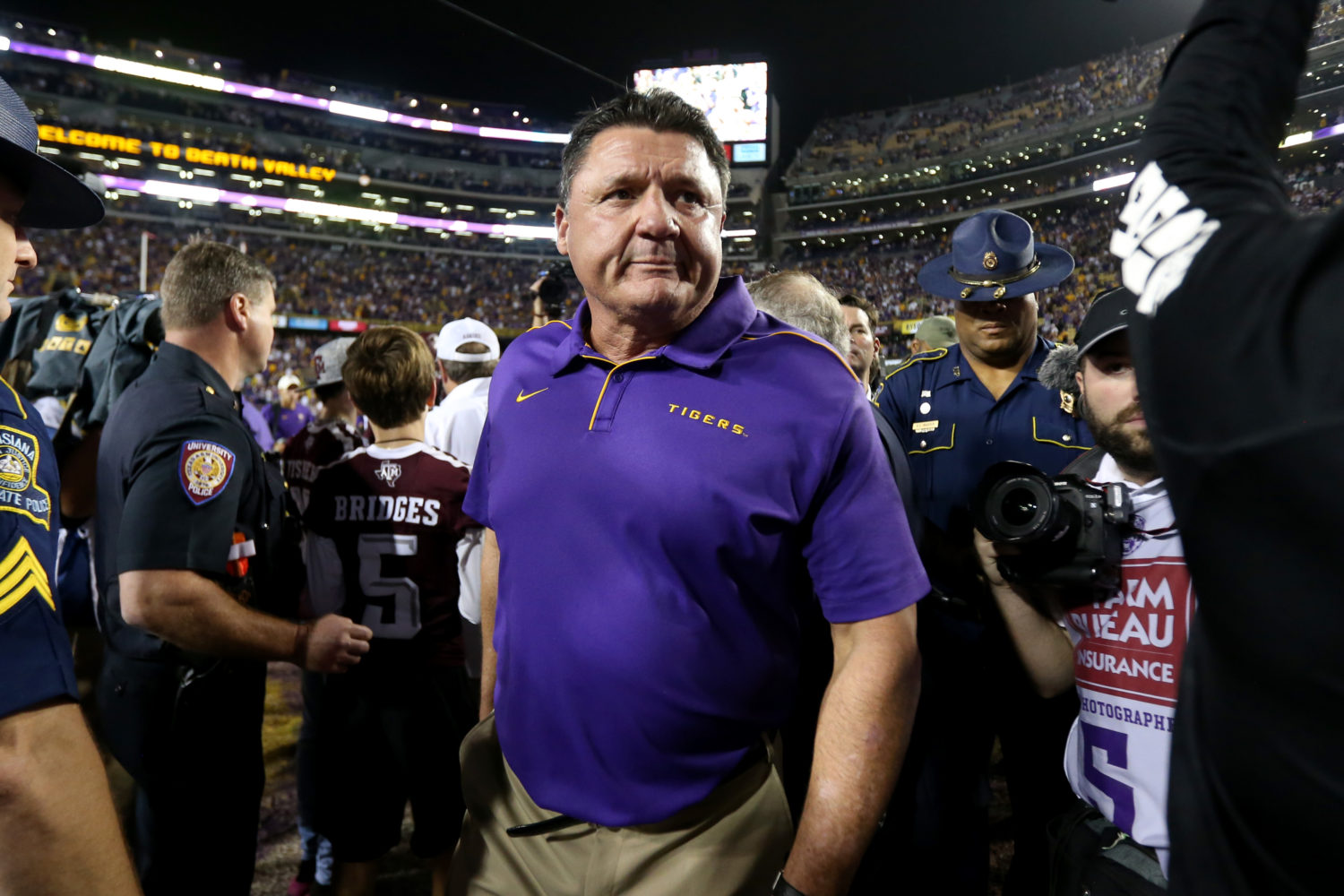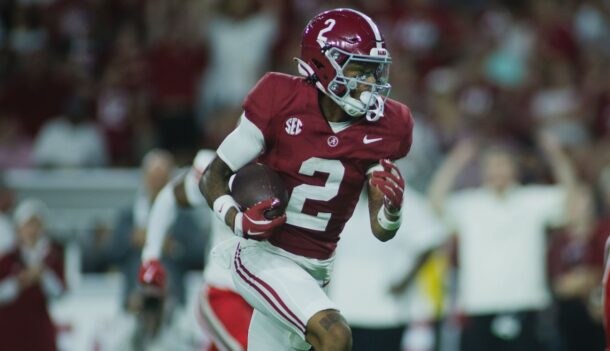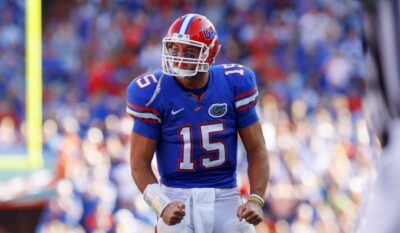
Yes, the USA Today report changes how we should feel about Ed Orgeron at LSU
Read the report.
Read the USA Today report that came out on Monday and tell me that Ed Orgeron acted properly when 9 of his players were accused of sexual crimes against women. Read the USA Today report and tell me if you believe that Orgeron, as he said in a separate statement, “takes any allegation very seriously” and that he followed Title IX reporting.
On second thought, don’t do that. This isn’t about some “he said, she said” case. That’s for the courts to decide.
What’s not up for debate is that Orgeron didn’t suspend 7 of the 9 LSU players who were reported to police for sexual crimes against women, 2 of whom were Grant Delpit and Jacob Phillips, who played key roles on LSU’s national championship team in 2019. Four LSU players weren’t disciplined after being accused of rape, including star tailback Derrius Guice.
That, by the way, is not an “innocent until proven guilty” deal when it comes to a head coach acknowledging accusations made against his players. If you read the report, you saw this key line, which states:
LSU policy requires employees who witness or are told about possible sexual misconduct or dating violence to notify the school’s Title IX coordinator, who conducts an initial investigation.
So where’s the evidence that Orgeron knew about the serious allegations made against some of his players?
If you read the report, you saw what happened with former LSU receiver Drake Davis. At least 7 officials had knowledge of Davis being accused of repeatedly abusing his girlfriend, who was on the LSU tennis team.
Per the report, “A football player and roommate of Davis’ said he knew of the violence and that assistant football coach Mickey Joseph would call him each week asking if the woman was at his and Davis’ apartment. Joseph had also accompanied Davis to his July 11 interview with Sanders, records show.”
According to the accuser, Davis’ only punishment while the Title IX investigation unfolded was that he was banned from the LSU weight room that summer. But when fall practices began, Davis was reinstated. It wasn’t until Aug. 16 when the accuser showed police evidence that Davis threatened to kill her that resulted in his arrest and criminal charge of felony dating violence. Orgeron then suspended Davis indefinitely but declined to answer whether he had prior knowledge of the previous allegations against Davis.
And that came 4 months after Davis confessed to punching the accuser in a text message with LSU deputy athletic director Verge Ausberry, according to police records obtained by USA Today.
It wasn’t just Davis, either. Why was Guice twice accused of rape but never suspended? There’s also the question about defensive linemen Devon Godchaux and Ray Parker, who were arrested for dating violence. Why were they never disciplined? Well, LSU wouldn’t confirm or deny if there was any disciplinary action taken, per the report.
LSU attorney Johanna Posada did confirm that Guice, Phillips, running back Tae Provens and tight end Zach Sheffer weren’t disciplined by LSU after being accused of rape. Posada also confirmed to USA Today that Delpit wasn’t disciplined after he was accused of recording a woman during sex without her knowledge and sharing the video with others.
Again, read the story. Sections like this should make anyone skeptical of LSU’s intentions as it relates to protecting athletes who are accused of sexually violent crimes:
Elizabeth Taylor, a Temple University professor who studies sexual assault and harassment within athletics organizations, said LSU exhibits the same “pattern of continually mishandling these types of incidents” that was seen at Baylor, Penn State and Michigan State.
“I don’t assume that any of these coaches don’t understand that what’s happening is wrong,” Taylor said. “I think they’re making decisions that are best for the success of the program, and they’re making the decision to put the safety and well-being of other students behind a player’s ability to play on a Saturday afternoon.”
Title IX protocols are federal law in order to prevent an abuse of power. That is, so that an accuser isn’t overcome by a public university with tens of thousands of students enrolled and a football program that brings in tens of millions of dollars in revenue.
This problem goes beyond Orgeron, of course. There are police records and text messages that document that this is an LSU issue, not just an Orgeron issue. But if there’s ever a person who has a chance to disrupt that, it’s a Power 5 football coach at a major public university, especially one who just put together the best season in the sport’s history.
On Monday, Orgeron opened his weekly zoom press conference by reading a brief statement in response to the report.
“I’d like to address the USA Today article that came out. First, I want to say that we need to support and protect victims of violence, sexual abuse of any kind. There is no place in our society nor on this campus or on our football program for any behavior of this type. When accusations are made, we have a legal and moral obligation to report every allegation to the university’s Title IX office so that due process can be implemented.
“I have in the past and will continue to take appropriate action and comply with report protocols. I have confidence today that the university is working to address our policies and processes when allegations arise. That’s all I’m going to say at this time.”
After that, Orgeron said that he wouldn’t say anything else about the report, and then he spent almost all of the press conference answering football questions. There wasn’t anything close to a follow-up question until USA Today Network’s Glenn Guilbeau later asked if the report reflected an LSU culture that predated his arrival, which Orgeron dismissed but added “your question is important.”
You know what’s not important right now? Whether LSU’s backup left tackle is able to practice this week. Just a thought.
What’s important is that Orgeron acknowledges that he made mistakes in judgment for the betterment of his program and that he vows not to repeat them. Better yet, what’s important is that his actions show that he’s not repeating those mistakes.
Stories like the one that came out Monday aren’t the product of some media bias against a university or its football team. They’re the product of years of silenced accusers who felt they were let down by the powers in place.
If you’re defending Orgeron’s actions, ask yourself why. Ask yourself if you’d feel the same way if this were a rival school that showed a lack of discipline for athletes accused of sexually violent crimes.
No matter where your allegiances lie, anyone who read that report should be able to agree on this: Orgeron needs to be held accountable. Would his status be different at LSU if he weren’t last year’s feel-good story in college football? That question’s relevance in this situation is part of the problem.
It’s about time for Orgeron to be part of the solution.
Connor O'Gara is the senior national columnist for Saturday Down South. He's a member of the Football Writers Association of America. After spending his entire life living in B1G country, he moved to the South in 2015.







